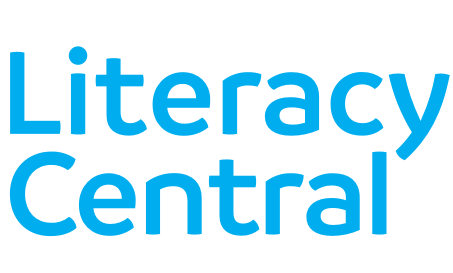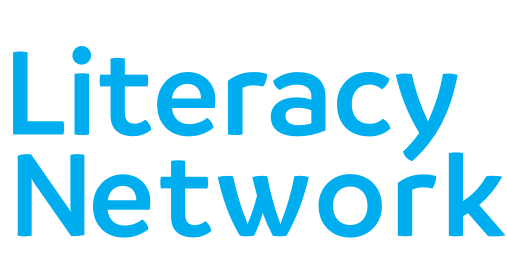Plan Your Book Celebration Event
Use this book celebration event checklist to help you in your event planning.
After sending in your Getting Starting Form, you will receive specific directions on how to order your books for your book celebration event(s). Please note that each book is $4. When ordering your books consider:
- The number of books you are allocating per child.
- The option to order a cushion of extra books to ensure every child, whether choosing their books first or last, has a choice in his or her selection.
- Providing ample time to process your book request and receive the books. We suggest all book orders are placed a minimum of four weeks prior to an event.
- For more information, please review the RIF Bookstore Guide.
- If you are unable to locate a certain type or genre of book that you would like to offer, please let us know at literacynetwork@RIF.org.
In addition to the book purchase costs, when developing your program budget and fundraising to support your efforts, consider potential, additional costs including:
- Ordering extra books to ensure all children have a choice in their book selection(s). Often our program sites order about an extra 10% of books based on the number of books determined per child to ensure that every child has a choice in his or her book selection.
- Incremental activities incorporated into your book celebration event(s)
- Event site/venue fees
- Author appearance fee
- Refreshments
- Signage (event banners, posters)
- Publicity
Schedule your book celebration event date(s) with ample time to publicize the event so parents and other local school and community leaders have the opportunity to attend and participate.
Select the location for your book celebration event(s) and take into consideration venue costs (if any), hours available (including time for set-up and clean-up), space to accommodate the expected number of children as well as space for book display tables and activities. Make sure to follow approval procedures associated with different types of locations. Below are some suggested event locations that are well-suited for a Books for Ownership book celebration event.
- School gymnasium
- School cafeteria
- School or public library
- Community center
- Outdoor venue such as a park
Consider selecting a theme to help guide the planning of your book celebration event. A theme can provide structure for your motivational activities, event décor, and even the student book offerings. Examples of possible themes and related RIF resources include “Under the Sea,” “Fly Into Summer With Reading,” and “It’s a Jungle Out There.”
Reach out to your volunteers and assign each a specific task(s) for the book celebration event. Plan to offer a brief orientation prior to the event to review roles. Volunteer support may include:
- Setting up/breaking down event space (decorations, tables, etc.)
- Sorting books by grade level or theme as needed and putting on display
- Replenishing book distribution table(s)
- Assisting children with their book selections
- Helping children write their names in their books
- Assisting with crowd flow around tables
- Overseeing motivational activity including crafts, experiments, or other hands-on, experiential learning
- Discussing book selections with the children and asking them if they’d like to sit down and read the book together
- Taking pictures to capture the experience (don’t forget to get parental permission for any photos later used to showcase the event) and share with RIF at literacynetwork@RIF.org.
Offering a Books for Ownership program in your school or community is a true opportunity to impact children, inspire them to read, and engage them in a lifelong passion for reading and for them to benefit from the power of literacy. Communicate to your parents, community, elected officials, and local literacy advocates about your specific Books for Ownership activities. This outreach raises awareness and may even help secure additional volunteers and fundraising dollars for future efforts.
To help you in this area, RIF provides a customizable template for the following communication resources:
Brand the event with ‘Reading Is Fundamental’ to showcase your support of our collective mission to help all children learn to read and thrive. We invite you to use the RIF logo for an event banner, poster, book bin sign, and even book plates or stickers. Or, we offer customizable templates to download and print including:
Getting books into the hands of children is the priority of Books for Ownership. In addition, this program encourages, engages, and motivates strong reading habits through the inclusion of motivational reading activities to incorporate into the event(s). Some examples include:
- Read-Alouds: One of the tried and true reading activities at Books for Ownership events is the guest read-aloud. This provides an ideal opportunity for someone from the school or community (such as a teacher, parent, local author, elected official, business or community leader) to provide a highly engaging experience. The most effective read-alouds are interactive, involving the students asking questions about the book being read.
- Costumes: Encouraging children to dress up as their favorite story character creates a highly interactive opportunity for them to discuss the books they have read. Having educators and parents participate and also dress up reinforces how literacy is a shared experience that transcends age.
- Arts & Crafts: Setting up stations with arts and crafts materials can provide a great outlet for students to express themselves before, during, or after the event. These types of activities are especially supportive of visual learners, providing them a way to describe or show what they have gleaned from a story or book.
Please review our Motivational Activities Guide for more ideas.


